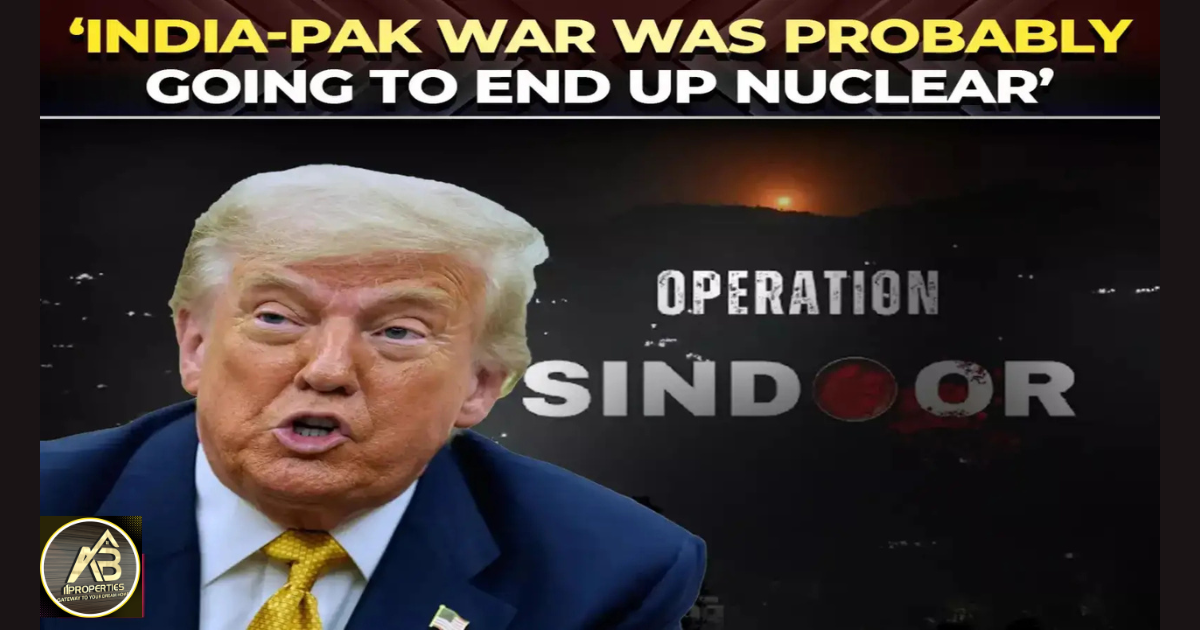India-Pakistan War Was Probably Going to End Up Nuclear
Keyword: India-Pakistan nuclear war
Introduction
The historic India–Pakistan rivalry has witnessed multiple wars, clashes, and numerous border tensions ever since both countries attained independence in 1947. But what distinguishes this competition from most others is that both countries are nuclear powers. The notion that any future India-Pakistan conflict might escalate to a nuclear war isn‘t simply a hyperbolic exaggeration—it‘s a cold sobering reality that specialists, diplomats, and military planners have considered seriously for decades.
In this blog post, we’ll explore why the India-Pakistan war was probably going to end up nuclear, examining historical context, military doctrines, key incidents, and the delicate balance of deterrence that has (so far) kept a full-scale nuclear confrontation at bay.
A History of Conflict: Prelude to Nuclear Standoff
India and Pakistan have engaged in four large-scale wars (1947–48, 1965, 1971, and 1999), with many border clashes and military confrontations in between. The 1971 war, which created Bangladesh, was a humiliating setback for Pakistan and significantly shaped its future defence policy.
The competition went nuclear when India conducted its first nuclear test in 1974, followed by Pakistan in 1998. Both countries since then have built considerable arsenals, delivery systems, and second-strike capabilities, so any subsequent war would be exponentially more perilous.


The Kargil Conflict: A Nuclear War Averted?
The 1999 Kargil War was the nearest instance when India and Pakistan almost upgraded a conventional war into a nuclear confrontation. Within one year of Pakistan‘s nuclear tests, its soldiers and militants intruded into Indian forces in the Kargil area of Jammu and Kashmir.
India reacted militarily but did not cross the LoC into Pakistan. This was universally understood to be a calculated decision in order to prevent nuclear escalation. Accounts and post-conflict review indicate that Pakistani leadership, led by then-army chief Pervez Musharraf, had considered using tactical nuclear capabilities if Indian troops advanced too far.
Although nuclear weapons were not employed, American and global diplomacy played an indispensable role in diffusing the crisis. President Bill Clinton allegedly coerced then-Pakistani Prime Minister Nawaz Sharif to withdraw soldiers and prevent nuclear disaster.
Cold Start Doctrine: Fueling the Nuclear Threat
India‘s Cold Start Doctrine—a post-2001 Parliament attack military strategy—was intended to enable rapid and contained conventional military retaliation without providing Pakistan with sufficient time to mobilize nuclear counter-retaliation.
Reacting to this, Pakistan developed its tactical nuclear weapons program like the Nasr missile system that can deliver low-yield nuclear warheads on the battlefield. Pakistan indicated that it would not be afraid to use tactical nuclear weapons should it feel its territorial integrity is being seriously threatened—even against a conventional Indian invasion.
This formed an ominous paradox: India attempts to deter
Pakistan through quick response capacity, and Pakistan retaliates with threats of initial nuclear employment. This equilibrium reduces the nuclear threshold, and thus accidental or deliberate escalation is more probable.
Pulwama-Balakot: A Close Brush with Disaster
In 2019, a Pulwama, Kashmir, suicide bombing killed 40 Indian paramilitary members. India accused Pakistan-based organization Jaish-e-Mohammed and struck back with Balakot airstrikes within Pakistani borders—a first since 1971.
Pakistan replied with its own airstrikes, and the two countries clashed in dogfights. An Indian fighter jet pilot was taken prisoner and eventually returned, diffusing some of the tension. Again, the world held its breath as two nuclear powers balanced on the edge.
Several international defense analysts and experts opine that if the confrontation had escalated just a little further, the nuclear option again would have been on the agenda.
Nuclear Command and Control: Robust or Fragile?
India and Pakistan have both stated nuclear doctrines but with a difference.
India has a No First Use (NFU) policy to present nuclear weapons only as a deterrent.
Pakistan refuses to embrace NFU on the grounds that it has a weaker conventional military and needs to keep an option to strike first if need arises.
Critics contend that Pakistan‘s command and control infrastructure is less centralized, which may raise the probability of miscalculation or unauthorized firing. The existence of non-state actors and jihad groups in Pakistan also creates anxiety about the safety of its nuclear stockpile.
The threat of nuclear war between India and Pakistan is not only a military concern but a political–psychological one, fueled by distrust, nationalism, and domestic forces.
Can a Future War Become Nuclear?
Sadly, yes. Various war-gaming exercises by think tanks such as RAND Corporation and the Carnegie Endowment for International Peace have concluded that an India–Pakistan conventional war could become nuclear in days, particularly when:
India incursion into Pakistani territory
Pakistan feels threatened by regime change or extinction
Tactical nuclear weapon is employed, triggering retaliatory nuclear strikes
The problem is aggravated by fast response times and the absence of hotlines or communication protocols that would forestall misunderstanding in a crisis situation.
The International Mediation and Diplomacy Role
In the past, U.S., China, and Russia have intervened to defuse India-Pakistan crises. Yet, over-reliance on outside mediation amounts to a dangerous bet. A localized flashpoint, such as a terrorist attack, can escalate rapidly with little time to intervene diplomatically.
The world community needs to promote direct dialogue, confidence-building measures, and nuclear risk-reduction measures between both countries.
Conclusion: Living on the Nuclear Edge
The India-Pakistan conflict is not just a local conflict—it‘s an international concern. As long as nuclear arms continue to be a key part of both countries’ national security, escalation threat is always looming.
Though deterrence has succeeded so far, deterrence is not always successful. All it takes is one miscalculation, one misunderstanding, or one maverick player to tilt the game toward catastrophe.
The reality is harsh: any all–out India-Pakistan conflict was—and still could be—destined for a nuclear conclusion. Both countries need to move on from tough-talking and spend on persistent peace negotiations, trust-building, and regional collaboration.
The price of failure is not only national—it‘s existential.
Keyword Focus: India-Pakistan Nuclear War
We have analyzed in this blog post why the India-Pakistan nuclear war was a possible scenario in the past conflicts and is an ever-present threat in the future. As the region remains plagued by political instability and cross-border tensions, understanding and resolving the nuclear aspect is vital for world peace.
At AB PROPERTIES.IN, we standout as a top real estate advisory firm in Siliguri based on our unshakeable focus on excellence and customer satisfaction. Here’s why selecting us guarantees a smooth and satisfying property experience:
1. Extensive Market Knowledge
Our experts have an extensive knowledge of Siliguri’s property market, particularly prime locations such as Sevoke Road, Matigara, and Hakim Para. Based on this expertise, wearable to present realistic market reviews and recommend investment choice customized for you.
2. In-Depth Service Offered
We provide a complete range of real estate services, from property acquisition and sale to investment advice, legal consultation, and property management. This comprehensive process guarantee sale your real estate requirements are met in one place, marketing easy and time-saving.
3. Client-Centric Approach
Your satisfaction is of the highest concern to us. We invest the time necessary to learn your distinctive needs and strive hard to surpass your expectations, making certain that each transaction willmeet your aims and wishes.
4. Honesty and Openness
We maintain the utmost standards of integrity and honesty in all our activities. From transparent communication to plain and simple negotiations, you can rely on us to deal with your property interests with the highest integrity.
5. Powerful Network and Relationships
Relying on our vast network of developers, legal professionals, and financial planners, we give you the leverage of useful resources and contacts, improving your property experience and providing solutions to every issue that can crop up.
6. Track Record
Our track record of successful deals and happy customers says a lot about our commitment and efficiency. We have always enabled profitable deals, which has made us a go-to real estate partner in Siliguri.
7. Personalized Guidance
We know that every client is unique. Our personalized guidance ensures that your individual needs are met, and you get customized solutions that suit your goals.
Contact Us: Shop No. 205, 2nd floor International Market Near Pani Tankin More Sevoke Road Siligur W.B.-734001.
ask@propertiesab.com
abproperties.in@gmail.com
Facebook
Twitter
Youtube
Pinterest
Threads
Linkedin
Instagram
